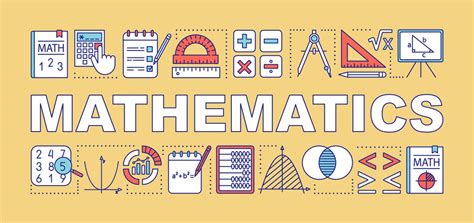Introduction

Mathematics, the universal language of science and technology, plays a pivotal role in shaping our world. From the intricate calculations that govern rocket launches to the algorithms that power our smartphones, math underpins every aspect of modern society. To master this fundamental subject, students must progress through a sequence of math subjects in a logical order. This comprehensive guide will outline that order, providing a roadmap to mathematical knowledge from the basics to advanced calculus.
Early Math
1. Arithmetic (Ages 5-7)
Arithmetic forms the foundation of math, introducing students to basic operations such as addition, subtraction, multiplication, and division. It also includes concepts like place value, rounding, and measurement.
2. Algebra I (Grades 8-9)
Algebra I builds upon arithmetic, introducing variables, equations, and inequalities. Students learn to solve one-step and two-step equations, factor polynomials, and graph linear functions.
3. Geometry (Grades 9-10)
Geometry explores the properties of shapes and figures in two and three dimensions. Students study concepts such as angles, triangles, circles, and polygons, as well as theorems and problem-solving techniques.
4. Algebra II (Grades 10-11)
Algebra II delves deeper into algebraic concepts, introducing quadratic equations, polynomials, logarithms, and matrices. Students develop problem-solving skills and apply algebraic principles to real-world situations.
Advanced Math
5. Trigonometry (Grade 11-12)
Trigonometry focuses on relationships between the angles and sides of triangles. Students learn trigonometric functions (sine, cosine, tangent), identities, and applications in areas such as navigation and engineering.
6. Pre-Calculus (Grade 12)
Pre-calculus serves as a bridge between high school math and college-level calculus. It combines concepts from algebra, trigonometry, and analytic geometry to prepare students for the rigors of calculus.
7. Calculus I (College)
Calculus I introduces the fundamental concepts of calculus, including limits, derivatives, and integrals. Students learn to analyze functions, find derivatives and integrals, and apply calculus to solve problems.
8. Calculus II (College)
Calculus II continues the study of calculus, focusing on applications and techniques. Students learn about techniques of integration, sequences and series, and differential equations.
9. Calculus III (College)
Calculus III explores calculus in three dimensions. Students study vectors, vector functions, partial derivatives, and multiple integrals. It provides a foundation for advanced mathematics and applications in fields like physics and engineering.
10. Differential Equations (College)
Differential equations play a crucial role in modeling and solving problems in science and engineering. Students learn to solve differential equations, analyze their behavior, and apply them to real-world scenarios.
Applications of Math
The applications of math are vast and far-reaching, spanning a wide range of fields:
- Science and Engineering: Math forms the basis for scientific theories, engineering designs, and technological advancements.
- Finance and Business: Math is used in financial modeling, risk assessment, and economic analysis.
- Healthcare: Math is essential for medical research, diagnostics, and patient care.
- Education: Math education empowers students to think critically, solve problems, and understand the world around them.
Careers in Math
A strong foundation in math opens doors to a wide range of rewarding careers, including:
- Data Scientist
- Statistician
- Mathematician
- Actuary
- Financial Analyst
- Software Engineer
- Research Scientist
FAQs
-
Why is the order of math subjects important?
- Progressing through math subjects in a logical order allows students to build a solid understanding of each concept before moving on to more complex topics.
-
Can I learn math on my own?
- While math can be self-taught, it is beneficial to seek guidance from teachers or tutors to ensure a thorough understanding.
-
What resources are available to help me learn math?
- Numerous resources are available, including textbooks, online courses, and tutoring services.
-
What is a “mathematician”?
- A mathematician is a professional who specializes in studying and applying math, often involved in theoretical research or practical applications.
-
What are the job prospects for people with strong math skills?
- According to the U.S. Bureau of Labor Statistics, the job outlook for mathematical scientists is projected to grow by 13% from 2021 to 2031, faster than the average for all occupations.
Conclusion
The path to mathematical proficiency involves a sequential journey through a series of core subjects, from arithmetic to calculus. Each subject builds upon the previous one, gradually expanding students’ knowledge and skills. By understanding the order and progression of these subjects, students can chart a clear path toward mathematical mastery. Whether pursuing a career in math or simply seeking a deeper understanding of the world, a solid foundation in mathematics is essential for success in the 21st century.
